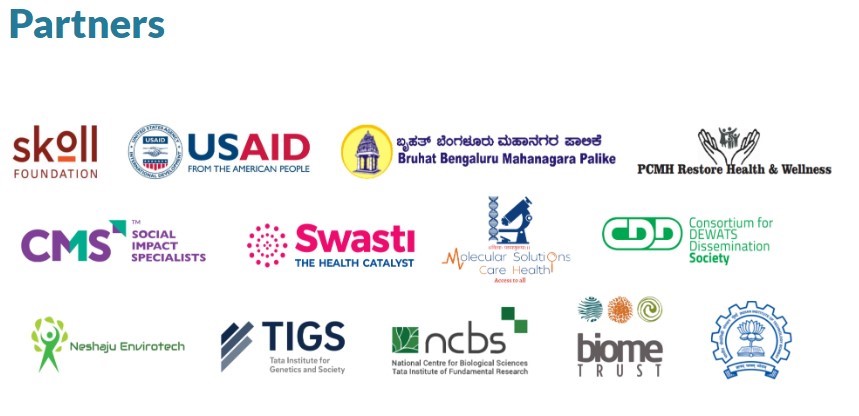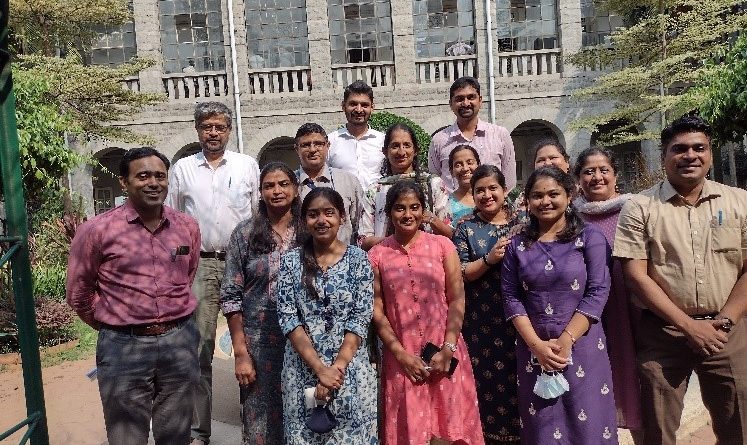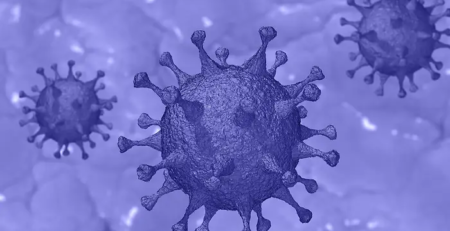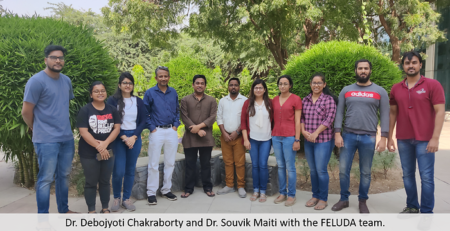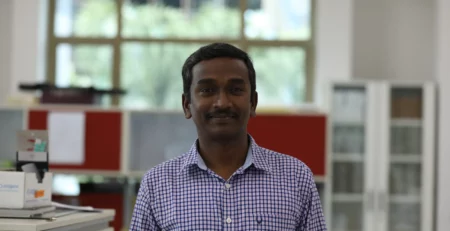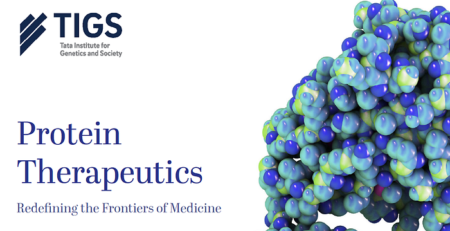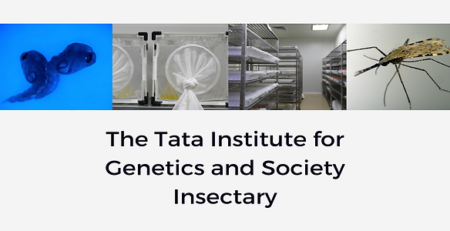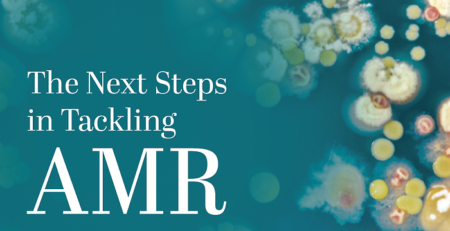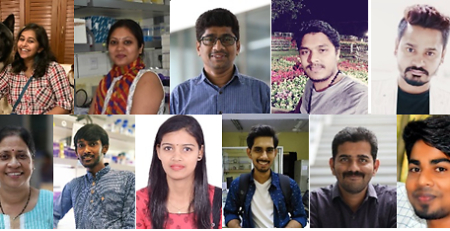Wastewater epidemiology is an approach where the wastewater generated by humans is analysed for biological and chemical markers to screen for pathogens and drugs in a particular geographical area or a community. It serves as an important tool to assess the disease prevalence in a population. During the COVID-19 pandemic, WBE has been extensively used by health authorities and researchers from several countries, including India, to keep a track on the progression of SARS-CoV-2 infection. It is found that both symptomatic and asymptomatic patients shed viral fragments through the faeces. The viral RNA load in the human waste, which is collected as sewage or wastewater, can be used as a readout/proxy to estimate the prevalence of the disease in the community.
Towards this end for the city of Bengaluru, TIGS along with various public health organizations have come together and formed a consortium under Precision health to conduct regular and timely analysis of wastewater generated in the city. Bengaluru has one of most well connected sewage system and has 28 sewer sheds and 46 open drain sites which covers almost 80 percent of the city’s population. Since August 2021, samples are being collected samples are collected twice a week for each open drain site and four times a month for each sewer shed site to detect the presence of degraded SARS-CoV2 RNA. This information helps in building a real time monitoring system for the prevalence and spread of Covid – 19, at least two weeks before an outbreak in a particular area.
This work is being carried out in collaboration with the Bangalore Water Supply and Sewerage Board (BWSSB) and Bruhat Bengaluru Mahanagara Palike (BBMP), the local municipality. The real time monitoring system developed provides sufficient time and helps the local health authorities to keep track of spreading infections and take appropriate public health measures to contain the disease.
TIGS scientists Dr. Farah Ishtiaq and Dr. Sanjay Lamba co-organised a workshop on 5th May 2022 with Special Commissioner Health, BBMP on environmental surveillance & micro planning to tackle the #COVID19 load in the city. The workshop discussed collective efforts on Environmental surveillance of Covid-19, insights from prediction models for effective decision making and genomic surveillance of circulating variants in the city.
On June 17th an event was organized to commemorate the efforts of all involved in the project. Representatives from all organizations participated and shared their experiences on the project and discussed what lies ahead of us in the coming future and the various areas where wastewater surveillance can be used to inform public health decisions. Speaking at the event, Dr.Farah Ishtiaq, Principal Scientist at TIGS stressed on the power of genomic sequencing and how it is being used to know what is floating in the waters of Bengaluru. A play book was also launched at the event, which captures all the learning experiences from Bengaluru city and serves as a template for conducting a sustained environmental surveillance of sewage waters of any city.

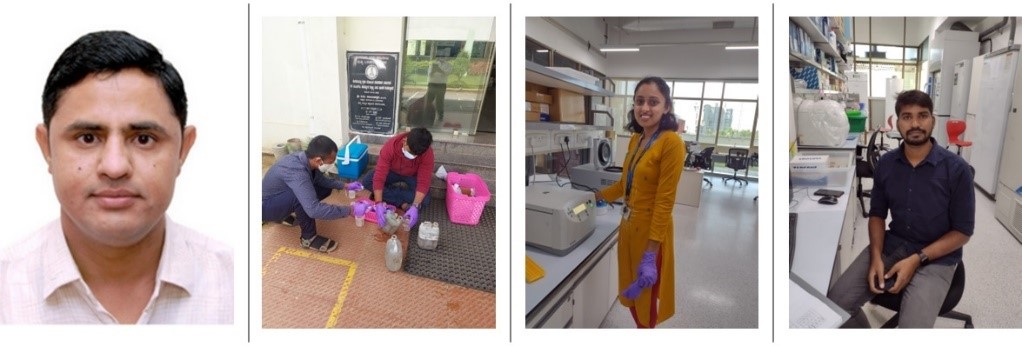
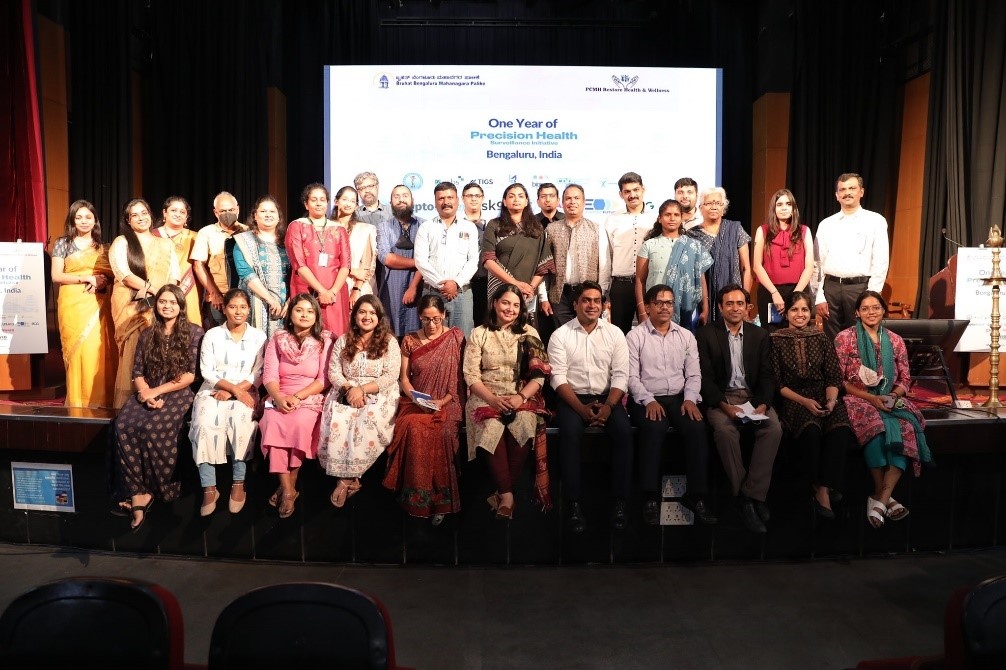
TIGS is proud to be a part of this efforts to conduct environmental surveillance of the wastewaters and to build a robust system for real time monitoring, help in better understand disease dynamics & come up with tangible solutions to tackle Covid-19. We envisage such collaborations are forged not only for Covid-19 but beyond to address health issues of common interest.
To get real time updates on environmental surveillance of #SARSCoV2 from #Bangalore city visit https://storymaps.arcgis.com/stories/c42be68c85634d19a5d92873a10bda66
Collaborative partners
